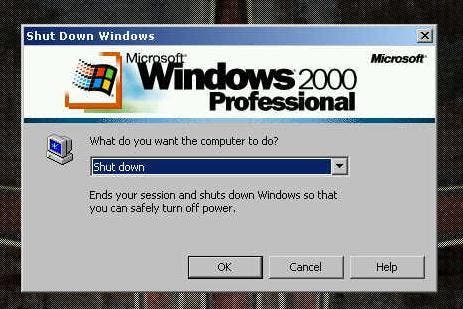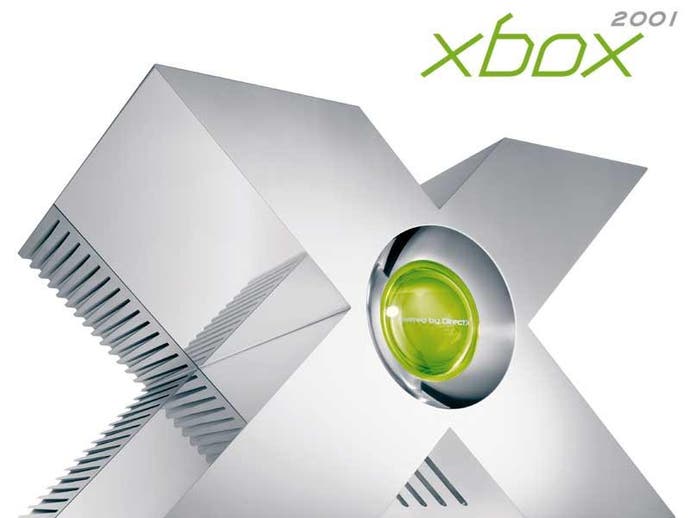The Future Of Windows Gaming
Microsoft's vision of Things To Come
You might be mistaken for thinking that the PC was dead as a gaming platform, given some of the comments that have been coming out of the gaming industry recently. Far from it, says Microsoft. But then, they would, wouldn't they?
According to Microsoft, by the end of the year there will be around 200 million PCs with 3D graphics hardware, giving the PC a larger installed base than any console. The trick now is to make playing games on those millions of PCs as easy as it is on a console...

DirectX 8
Microsoft's latest effort to make Windows a viable gaming platform is the introduction of DirectX 8. The latest version of their API is due for release this autumn, and many developers already have a working beta version of it to experiment with.
DirectX has come a long way since the early days, with each new version improving functionality, usability, and performance, although obviously this means something of a learning curve every time a new version is released.
"We do have a reputation for changing DirectX on you", Microsoft's Colin McCartney admitted to game developers at the WGDC conference in London last week, joking that this was "just to keep you on your toes".
This latest version is intended to add a number of important new features (which we will cover in more detail in a series of articles about DirectX 8 over the coming weeks), as well as improving the experience of the end user - that's you and me. One of Microsoft's main concerns is that at the moment PCs lose out to consoles on ease of use. With a console you simply stick the CD in the drive and the game loads. In a PC you have to worry about hardware support, driver quality, inconsistent install routines, and stability.
According to Colin, Microsoft wants to keep the user configurability for the hardcore gamers, whilst making things easier for "more naive users". The aim is to make installing and playing a game on your PC as painless as possible.
My WHQL Friend
An important part of this is the Windows Hardware Quality Lab, or WHQL to its friends. Most of the key hardware developers are now working on-site with Microsoft to make sure that their hardware works properly with the latest versions of Windows and DirectX, and that their drivers are up to scratch.
Microsoft are also planning a "game logo" program, which will see new games being tested against a set of standards to "guarantee a better experience for gamers". This includes issues such as installation and setup, hopefully encouraging developers to do more than just copy files on to your hard drive and scatter shortcut links at random all over your desktop and start menu...
This ties in with the new application manager in DirectInput 8, which makes the whole installation process easier to manage, and aims to give gamers a more consistent experience.
There was also talk about a hard drive space management system as part of this, which could remove older games that you no longer play from your hard drive to make space for new ones. I wasn't very clear on exactly how this was going to work, and Colin didn't go into any great detail, but it certainly sounds intriguing.
Again, this isn't so much aimed at the hardcore gamer, who knows what he is doing, but at Joe Bloggs who has difficulty programming the time on his VCR and stops buying games when his hard drive fills up because he doesn't know how to clean it up.

Whistle Down The Wind
The next big version of Windows, known as "Whistler", is another key part of Microsoft's plan. This is based on the Windows 2000 operating system for added stability, whilst adding the kind of compatibility we expect from Windows 9x.
In an unusual moment of candour for a Microsoft employee, Colin told us that while running Windows 98 "I was rebooting every 23 seconds", before going on to admit that Linux was pretty stable and "you need a nuclear weapon to knock it over". Although he did at least qualify that by saying that Windows 2000 was even more stable...
Because of this Colin recommended that developers use Windows 2000 for development, and "not just because it's more expensive". Unfortunately that's not the only price for Windows 2000's stability, as some games and hardware are not fully compatible with the operating system. "There are a few problems with running your games on Windows 2000", Colin confessed. "But that shouldn't be a problem with Whistler."
Microsoft are expecting everyone to upgrade to Whistler from Windows 9x when it is released, although they wouldn't say when that would be. "I would be killed if I told you", Colin replied, when asked about the new operating system's release date, before suggesting that we check the press, because Microsoft "leaks like a sieve"!

Code Retention
You won't have to buy a whole new operating system to see some increase in performance and stability though. Microsoft have removed a lot of legacy code from DirectX 8 to make it leaner and meaner. As Colin told us, DirectX 7 was "certainly full of .. stuff".
DirectDraw is the main casualty of this purge, with 50,000 lines of code being removed, and the remainder being merged with Direct3D. Blting of 2D sprites is one feature which didn't survive, as it is simply faster to render a pair of triangles covered with a texture than to do sprites the old fashioned way on modern hardware.
Palettized render modes are no longer supported either, with Colin declaring that "palettes are evil and disgusting". Palettized textures are still supported though, as the developers insisted they were still useful.
The end result is that DirectX is now less cluttered. This should make it easier to use for the developers, and make it harder for them to do things "the wrong way". This should make DirectX games more robust for us in the long run.
Conclusion
Microsoft might be hedging their bets by developing their own console in the form of the X-Box, but they certainly haven't given up on the PC as a gaming platform. With DirectX 8, Whistler, WHQL and the Windows gaming logo program, they are seeking to make playing games on your PC a more consistent and more stable experience.
In fact, in a way the X-Box is just a logical extension of this, taking the idea to its extreme by removing the ability to upgrade your machine, and so giving developers a single hardware platform to aim at, cutting out any chance of incompatabilities and driver issues.
After all, as long as it is running on a Microsoft operating system, the men from Redmond don't care what platform you are playing your games on.
-

